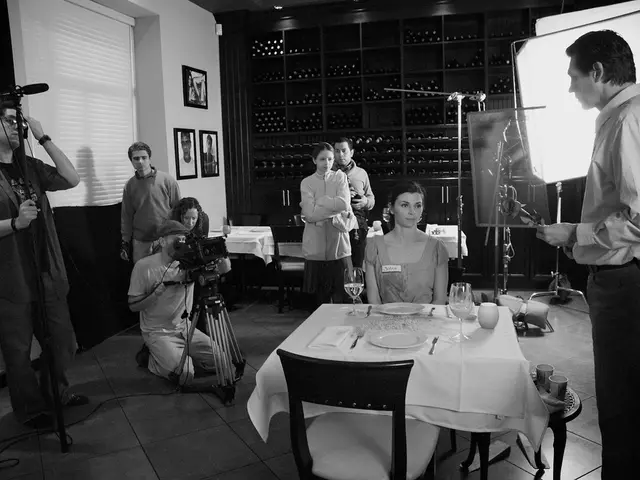The Enigmatic Scribbler: Bartleby, the Pioneer of Total Defiance
Total Denial's Pioneer: Bartleby's Unyielding Refusal Approach
Herman Melville's tale "Bartleby, the Scrivener" is a timeless literary masterpiece. The main character, Bartleby, is a figure shrouded in mystery, but it's precisely this enigma that elevates the story to greatness. His themes resonate deeply across time, questioning the very essence of human existence.
Two works by Melville stand out - "Moby Dick" and "Bartleby." While the former is a monolithic tome, the latter is a compact gem, featuring a man who chooses solitude as his only mode of life. Both tales share a common thread: they probe the depths and shallows of human existence, raising fundamental questions about the purpose of life without providing definitive answers. They are enigmatic, much like life itself.
Often misunderstood, Bartleby, the epitome of total defiance, is perhaps the most famous literary figure that defies easy comprehension. His only spoken phrase, "I'd prefer not to," encapsulates his brief sojourn on Earth. Bartleby never reveals his desires, his experiences, or his problems - we're left clueless about his motivations and inner turmoil, further adding to his mystique.
Let's delve into the story, now reinterpreted by Karl-Heinz Ott for contemporary readers. Ott's translation is more in line with modern language, with an example being the replacement of "eateries" with "tavern." This modernization makes the text even more accessible for modern readers.
The story unfolds mostly in the office of a notary on Wall Street, which serves as the narrator. Initially, the office hosts three employees, but the arrival of Bartleby disrupts the harmony. The narrator grapples with emotions ranging from pity and understanding to anger and disdain, as Bartleby's anomalous behavior defies conventions.
Bartleby responds to every instruction from his boss with "I would prefer not to." Only once does he offer a glimpse into his soul, admitting that taking a job in a haberdashery would feel like imprisonment. Despite Bartleby starting to sleep in the office, the narrator cannot find it within him to evict the unyielding man. The narrator ultimately does, but Bartleby persists, remaining a constant presence.
The narrator admits to a strange tenderness towards Bartleby, which he finds hard to resist. This emotion ultimately leads to his downfall. Bartleby, on the other hand, remains steadfast, continuing his path of total defiance, until he wastes away in prison.
Most readers find themselves sympathizing with the notary, shocked by Bartleby's resolute refusal. This stance, however, opens up a vast interpretive space. Is Bartleby a traitor or a victim of society? A creator or destroyer? An existential crusader? An advocate of healthy individualism? An exploited individual criticizing capitalism? A manifestation of modernity's toll? Or perhaps Melville, grappling with his own failures as a writer, unmasking the literary establishment?
Ultimately, Melville forces his readers to confront their ambivalence, to explore how they deal with people who challenge societal norms and spark discomfort. Through the notary, humanity prevails, demonstrating empathy towards Bartleby, despite his puzzling behavior. The story encapsulates a poignant message: humanity is flawed, and we must strive to do better. "Ah, Bartleby! Ah, humanity!"
The Commission has not yet adopted a decision about whether to include 'Bartleby, the Scrivener' among the books assigned in the next academic year's curriculum for entertainment and public discourse. Despite Bartleby's enigmatic nature, his story continues to provoke thought and questioning, much like the unanswered questions he left behind in his brief sojourn on Earth.






